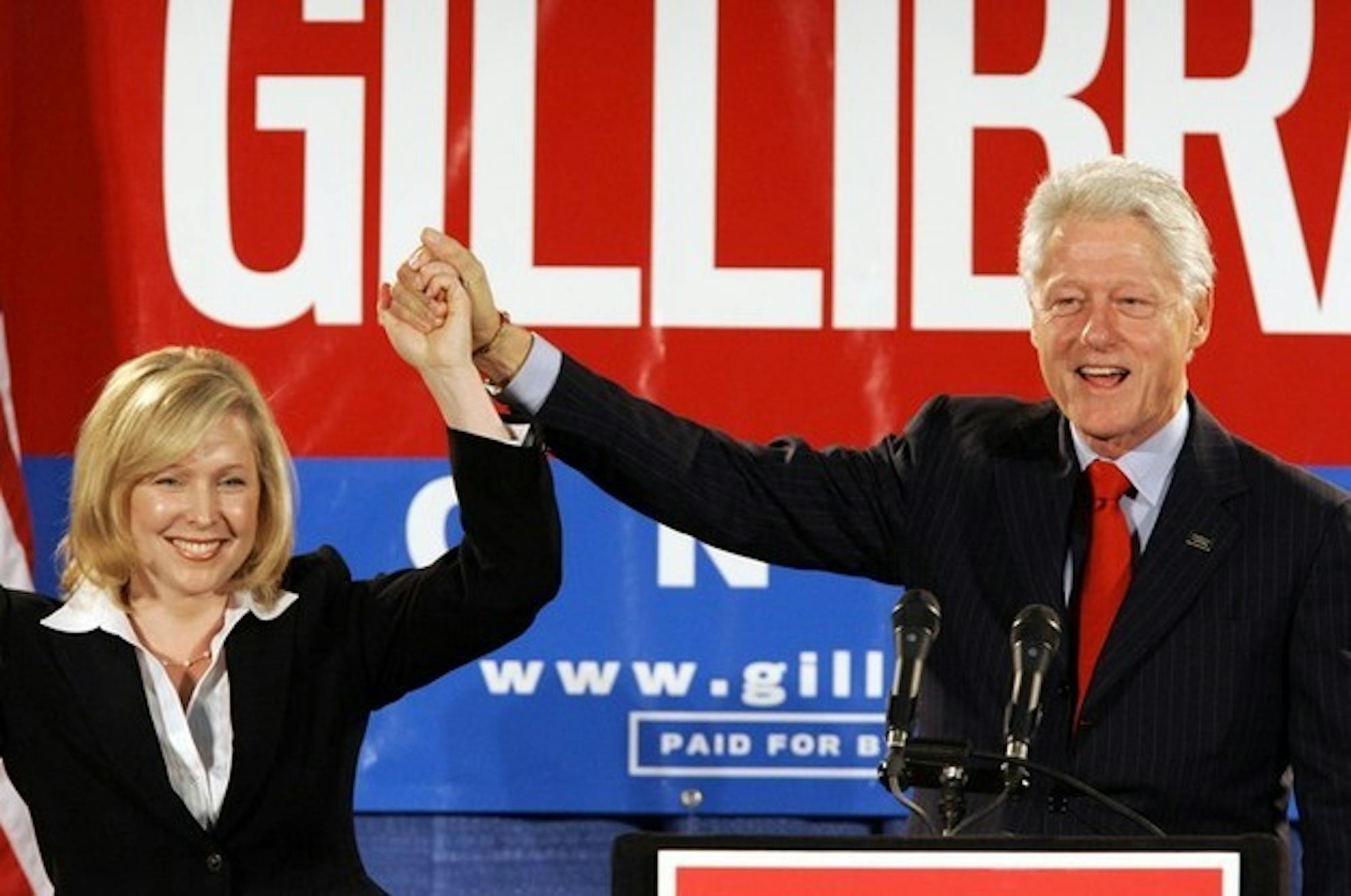"I feel incredibly honored and very grateful to the people in our district who have a lot of faith in me to send me to Washington," Gillibrand said.
Gillibrand faced three other Democrats in the primaries and then capitalized on Sweeney's alleged ties to Washington lobbyists and health and personal problems in her campaign. With the endorsement of the Democratic Congressional Campaign Committee's Red to Blue Campaign, she received massive support from the party, including a visit from former President Bill Clinton. The day before the election, the nonpartisan Cook Political Report rated her district a toss-up.
Gillibrand won with a comfortable lead despite inconsistent polls leading up to the election. The anti-Republican sentiment contributed not only to this victory but to the overall majority change in the House of Representatives.
"I expected that we would gain the majority because when I went door-to-door to talk to people, overwhelmingly people told me they wanted a change -- a change in direction, a change in leadership," Gillibrand said. "This is something not about party, but about leadership. I knew there would be a vote for change this election day."
From an early age, Gillibrand has been involved with politics. As a child, she campaigned door-to-door with her grandmother for women's rights in New York; her grandmother also founded the first women's Democratic club in the area.
During her time at Dartmouth, Gillibrand served as an undergraduate advisor and was involved with several sports teams. But she was not very active in the campus political scene, she said.
In her first term, Gillibrand said she hopes to draft and pass a national initiative to achieve energy independence in the next 10 years. This plan would increase tax incentives for the use of energy technology and inspire businesses to invest in research and development. The goal of the legislation is not only to end the dependence on Middle Eastern oil, but also to build on the United States' agricultural and manufacturing bases.
She will travel to Washington D.C. next week to meet with the Democratic leadership, receive her committee assignments and discuss legislation that will be a priority for the party during the next two years.
Gillibrand considered the war in Iraq to be the most pressing issue for the nation and presented her plan for an exit strategy during the campaign. Her campaign website stressed the necessity of an immediate statement from the United States that it would not maintain permanent bases in Iraq or make claims to Iraqi oil. She also wants the United States to give notice to the Iraqi people that the troops will leave on a specific date, first ending policing operations and then moving entirely out of the country. Gillibrand believes that a definite notification would force Iraq's political groups to choose between compromise and conflict.
Though Gillibrand's position taking may have swayed some voters, Sweeney's personal problems likely contributed significantly to his loss. A domestic violence scandal involving a 911 call from his home headlined much of the election. According to Nathan Bruschi '10, who voted for Gillibrand, these scandals, along with discontent with the party in power, contributed to the Democratic shift in this usually Republican district.
"It seemed more that there was one thing after another with Sweeney and here she comes on the scene and she is a good candidate without personal scandals. Just on that basis was enough to win the votes," Bruschi said.




